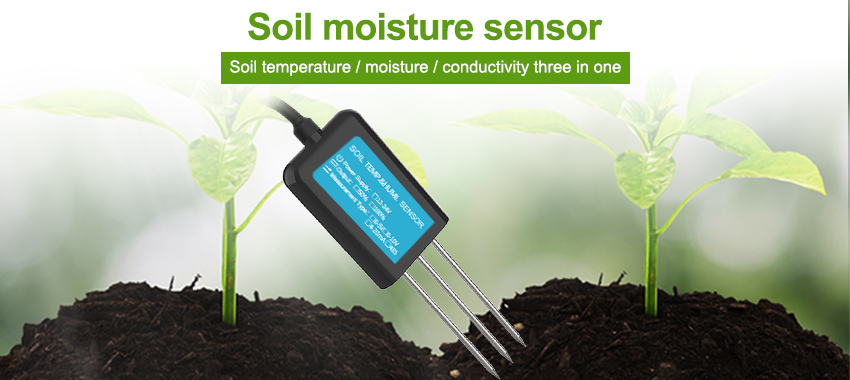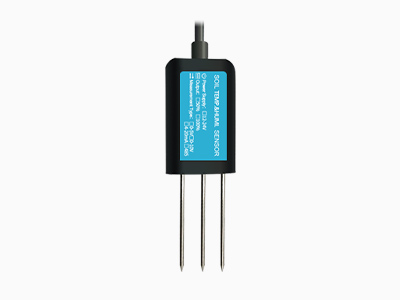Wireless soil moisture sensor have revolutionized the way farmers and gardeners manage irrigation practices. These innovative sensors provide accurate real-time data on soil moisture levels, enabling efficient water usage and promoting sustainable agriculture. This article explores the capabilities and benefits of wireless soil moisture sensors while highlighting their role in optimizing irrigation management.

Wireless soil moisture sensors are cutting-edge devices designed to measure and monitor the moisture content in the soil. They utilize advanced sensor technology and wireless connectivity to provide instant and reliable soil moisture data. With their wireless capabilities, these sensors eliminate the need for manual monitoring and offer convenience and flexibility in irrigation management.
The installation and setup of wireless soil moisture sensors are simple and hassle-free. The sensors are strategically placed in the soil, where they measure the moisture content at different depths. The collected data is wirelessly transmitted to a central control system, allowing farmers to access the information remotely through mobile apps or web-based interfaces.
One of the significant advantages of wireless soil moisture sensors is their ability to provide real-time data on soil moisture levels. This enables farmers to make timely and informed decisions regarding irrigation scheduling. By accurately monitoring soil moisture, farmers can avoid over or under-watering, ensuring that plants receive optimum moisture for healthy growth while conserving water resources.
With wireless soil moisture sensors, farmers can precisely track soil moisture variations across different areas of their fields. This allows for site-specific irrigation, where water can be applied only to the areas that require it, rather than uniformly irrigating the entire field. This targeted irrigation approach promotes water efficiency and reduces wastage.

Wireless soil moisture sensor also contribute to water conservation and environmental sustainability. By optimizing irrigation practices, farmers can avoid excessive water usage and minimize the risk of water runoff and leaching of nutrients into water bodies. This helps to protect the environment and preserve water resources for future generations.
Furthermore, wireless soil moisture sensors enable data-driven decision-making in irrigation management. The collected soil moisture data can be analyzed over time to identify trends and patterns, facilitating more effective irrigation strategies. Farmers can customize irrigation schedules based on specific crops, soil types, and weather conditions, maximizing yield potential and minimizing costs.
In conclusion, wireless soil moisture sensors have transformed the way irrigation is managed in agriculture. These sensors provide real-time soil moisture data, promote water efficiency, and support sustainable farming practices. By applying irrigation precisely where and when it is needed, farmers can conserve water resources, optimize crop growth, and achieve higher yields. Investing in wireless soil moisture sensors is a wise decision for farmers looking to enhance their irrigation management and contribute to a more sustainable future.
